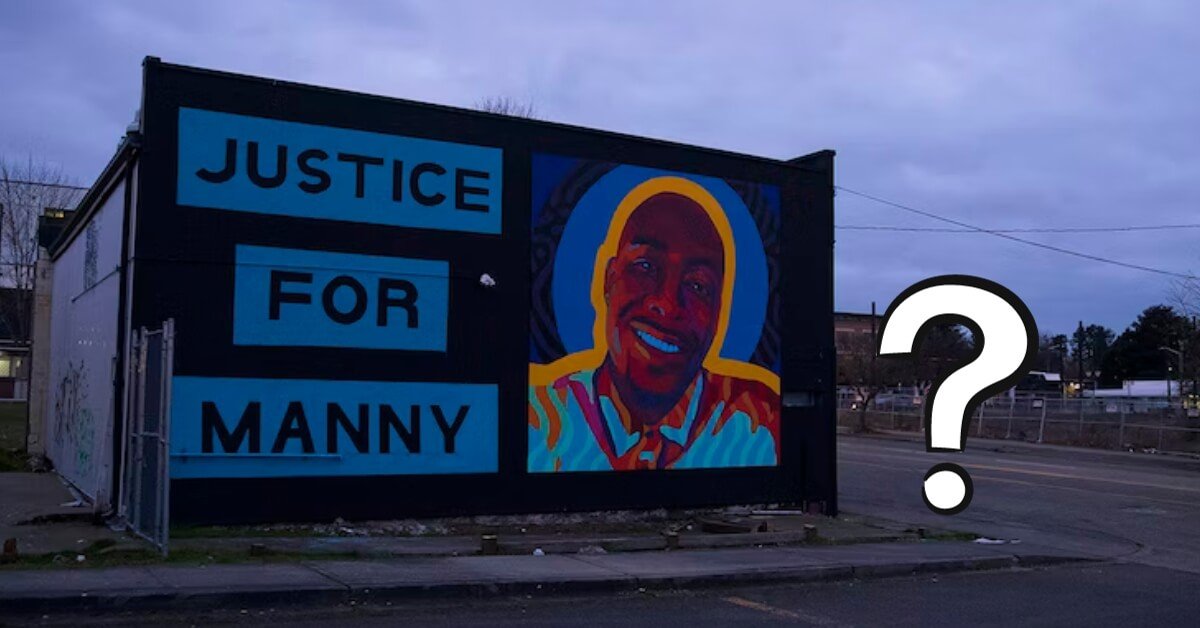Has the paradigm of wokeness now shifted to being just a mockery, or should we keep raising our voices for the injustice?
The George Floyd case was a testament to the power of these voices over the corrupt practices of law enforcement. Black Lives Matter was not just a movement but also opened case files that have systemic racial injustices written all over it.
The rise of Karens, Blue Lives Matter, and a floodgate of discourse around police brutality are just a few by-products of the movement.
However, the most significant outcome of these cases still lies in a murky field when the legalities are considered. The following case sheds light on how grey the matter is as opposed to our perception of black and white.
The story of Manny Ellis, a Black man whose encounter with the law turned fatal, has been making headlines and sparking debates across the United States. But why is this case so significant, and what does it tell us about our justice system today?
In March 2020, Manny Ellis’ name joined the tragic list of individuals who have died following encounters with police officers. This incident, which occurred in Tacoma, Washington, has drawn parallels with other high-profile cases of police encounters leading to the death of Black men. But what’s different this time? Let’s dive into the details and unravel the complexities of this case.
The answer is as complex as it is heartbreaking.
Manny Ellis, a 33-year-old Black man, died following an arrest. The three Tacoma police officers, Christopher Burbank, Matthew Collins, and Timothy Rankine, were accused of using excessive force while arresting Ellis for allegedly forcefully opening the car doors of an occupied vehicle. The police dispatch audio reveals that Ellis was heard crying, “I can’t breathe.” In the recent update, all three officers have been acquitted and found ‘not guilty’ of all charges.
The haunting words “I can’t breathe,” shall forever be etched in our minds as the disgraced history repeats itself a few months later with George Floyd.
Unraveling the Truth: The Manny Ellis Case
We delve deeper into the facts and testimonies that make this case both compelling and controversial.
“Manny Ellis was unarmed and walking home from a 7-Eleven with some donuts and a bottle of water when TPD officers stopped him. He was minding his own business and not a threat to anyone. Manny didn’t have to be arrested that night, and he certainly didn’t have to die,” Matthew Ericksen, attorney for the Ellis family, stated emphatically. His words echo the sentiments of many who have followed this case.
During the trial, a witness video and police dispatch audio were crucial pieces of evidence. They captured Ellis’ pleas of “I can’t breathe,” a phrase hauntingly reminiscent of other police brutality cases.
The officers’ defense centered on Ellis’ alleged drug use and a pre-existing heart condition, arguing these were the real causes of his death. But is this the full story?
As we dissect the events of that fateful night, questions arise. Were the officers justified in their use of force? Could Ellis’ death have been prevented? These questions linger in the air, unanswered. Governor Jay Inslee has issued his statement regarding the verdict, urging people to trust the judicial system.
The Pierce County medical examiner ruled Ellis’ death a homicide caused by oxygen deprivation.
On December 21, 2023, officers Christopher Burbank, Matthew Collins, and Timothy Rankine are acquitted of first-degree manslaughter, second-degree murder, and first-degree manslaughter in the death of 33-year-old Manuel “Manny” Ellis.
A Case That Raises Questions And Outrage
The delayed and denied justice has ignited another phase of the movement.
Was justice truly served in the Manny Ellis case? Does this verdict set a precedent for how similar cases will be handled in the future? Or do you believe that the officers are innocent in this case?
Share your opinions, and let’s start a crucial discussion. Manny Ellis’ story is more than a news article; it’s a mirror reflecting the complexities and challenges of our society.

